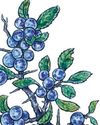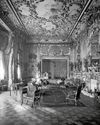
FOR all the changes it has undergone, Hampton Court arguably brings the modern visitor closer to the world of Henry VIII than any other building in Britain. Its link to the founding king of Protestant England has always been important, not only to the popular perception of the palace, but also to the monarchs who occupied and developed it into the 18th century. Towards the end of its period of royal occupation, indeed, there were several proposals to rebuild the court.
All these grandiose schemes, however, aimed to preserve at least one inherited structure: Henry VIII’s great hall. The choice was not fortuitous. Not only was the hall exceptionally large and splendid, but it wasthe public centrepiece of the Tudor palace and, by extension therefore, its chief and most imposing architectural antiquity.
The modern visitor who climbs the stair from the middle gatehouse (Fig 2) and walks into the great hall might be forgiven for thinking that they had stepped back in time. The Tudor interior with its spectacular roof seems perfectly preserved and the walls are hung with 16th-century tapestries depicting the story of Abraham (Fig 5). For many centuries, tapestry remained the most expensive and luxurious wall covering in English domestic interiors and this particular set—heavy with gold thread—was commissioned by Henry VIII in 1537 from the Brussels workshop of Willem de Kempeneer.
Diese Geschichte stammt aus der October 07, 2020-Ausgabe von Country Life UK.
Starten Sie Ihre 7-tägige kostenlose Testversion von Magzter GOLD, um auf Tausende kuratierte Premium-Storys sowie über 8.000 Zeitschriften und Zeitungen zuzugreifen.
Bereits Abonnent ? Anmelden
Diese Geschichte stammt aus der October 07, 2020-Ausgabe von Country Life UK.
Starten Sie Ihre 7-tägige kostenlose Testversion von Magzter GOLD, um auf Tausende kuratierte Premium-Storys sowie über 8.000 Zeitschriften und Zeitungen zuzugreifen.
Bereits Abonnent? Anmelden

Kitchen garden cook - Apples
'Sweet and crisp, apples are the epitome of autumn flavour'

The original Mr Rochester
Three classic houses in North Yorkshire have come to the market; the owner of one inspired Charlotte Brontë to write Jane Eyre

Get it write
Desks, once akin to instruments of torture for scribes, have become cherished repositories of memories and secrets. Matthew Dennison charts their evolution

'Sloes hath ben my food'
A possible paint for the Picts and a definite culprit in tea fraud, the cheek-suckingly sour sloe's spiritual home is indisputably in gin, says John Wright

Souvenirs of greatness
FOR many years, some large boxes have been stored and forgotten in the dark recesses of the garage. Unpacked last week, the contents turned out to be pots: some, perhaps, nearing a century old—dense terracotta, of interesting provenance.

Plants for plants' sake
The garden at Hergest Croft, Herefordshire The home of Edward Banks The Banks family is synonymous with an extraordinary collection of trees and shrubs, many of which are presents from distinguished friends, garnered over two centuries. Be prepared to be amazed, says Charles Quest-Ritson

Capturing the castle
Seventy years after Christian Dior’s last fashion show in Scotland, the brand returned under creative director Maria Grazia Chiuri for a celebratory event honouring local craftsmanship, the beauty of the land and the Auld Alliance, explains Kim Parker

Nature's own cathedral
Our tallest native tree 'most lovely of all', the stately beech creates a shaded environment that few plants can survive. John Lewis-Stempel ventures into the enchanted woods

All that money could buy
A new book explores the lost riches of London's grand houses. Its author, Steven Brindle, looks at the residences of plutocrats built by the nouveaux riches of the late-Victorian and Edwardian ages

In with the old
Diamonds are meant to sparkle in candlelight, but many now gather dust in jewellery boxes. To wear them today, we may need to reimagine them, as Hetty Lintell discovers with her grandmother's jewellery